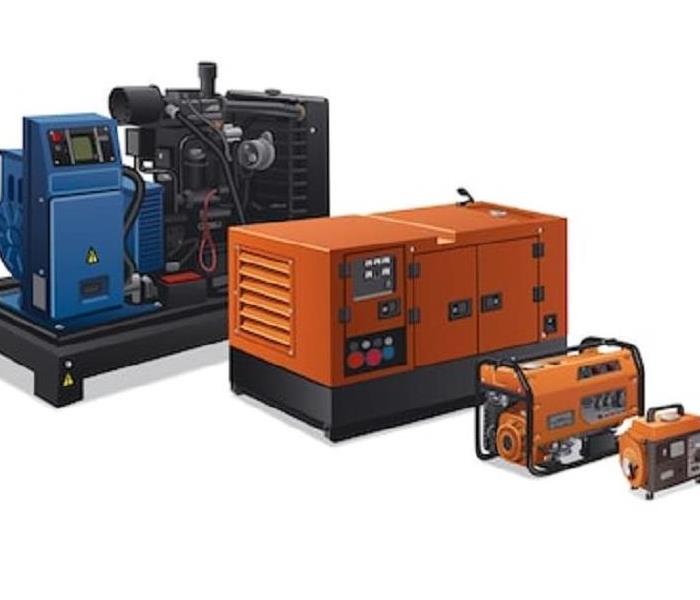Generators 101
12/19/2020 (Permalink)
Part One- Do You Need One?
Here in Connecticut, power outages can be a regular and unavoidable occurrence. Storms from hurricanes to blizzards often have homeowner wondering if now is the time to invest in a generator for their home. Generators can be an expensive investment for your home that some might consider a luxury, however to some households they can be a necessity.
Medical Equipment On Site
If you have life saving medical equipment on site that requires power to operate and it may be needed in an emergency, then it goes without saying that you need some sort of backup power.
Some of these medical devices may include:
- Home dialysis machine
- Suction devices
- Breathing machines
It is possible that such equipment has battery backup, but how long does it last?
If your average power blackout last for longer than the batteries on your emergency medical devices (or they don’t have backup at all) then you probably need a backup power source.
Essential Equipment
It’s possible that you have other non-lifesaving equipment in your home that is almost as important to keep running.
One example that spring to mind is a sump pump. Many houses rely on these devices to ensure they aren’t flooded and moisture levels are kept to a minimum.
Emergency Communications
For some of people, being able to communicate with the outside world is essential. Not just to be able to check Facebook or Instagram, but to be able to contact emergency services in the event of an emergency.
If you rely on power to keep your communications up and running (charging phones, CB radios, internet) and you simply MUST have the ability to contact the outside world at all times then you might need to look into a generator.
Large Amounts Of Frozen/Refrigerated Food
Most food is not cheapo, and If you keep large amounts of frozen or refrigerated food (meats especially) then it might be worth investing in a generator.
According to foodsafety.gov A full freezer will keep food frozen at a safe temperature for around 48 hours during a power outage (assuming you don’t open the door). After this time you will need to defrost it and consume it or dispose of it.






 24/7 Emergency Service
24/7 Emergency Service
